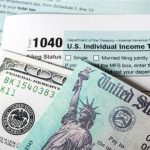Most people think pharmacies only collect what’s needed to fill a prescription. But the truth is, every time you swipe a loyalty card, sign up for a discount, or even answer simple questions, you may be sharing far more. From your address to sensitive health data, pharmacies quietly build detailed profiles. Many seniors don’t realize how much personal information changes hands. Here’s why it matters more than ever.
Loyalty Programs Come with Hidden Trade-Offs
Pharmacy reward cards promise discounts but often come at the cost of personal data. Every purchase, from over-the-counter meds to health supplies, builds a consumer profile. That information can be sold to advertisers, insurers, or data brokers. While the savings may feel helpful, they often come at the price of privacy. Few customers realize just how much is tracked behind the counter.
Prescriptions Can Reveal More Than You Think
Certain prescriptions signal sensitive health conditions, from mental health struggles to chronic illnesses. While federal laws like HIPAA protect some information, loopholes still exist. For example, insurers and third-party partners may access anonymized—but still revealing—data. Seniors filling prescriptions for multiple conditions could unintentionally share more about their health than intended. What seems private often isn’t completely sealed off.
Over-the-Counter Purchases Are Not Protected
Unlike prescriptions, everyday purchases like vitamins, cold medicine, or skin cream are not shielded by HIPAA. This means companies can track and analyze what you buy. Buying certain items regularly may even flag you for marketing or health-related assumptions. Seniors often overlook this because it feels routine. But those simple purchases can still create a digital footprint.
Digital Apps Expand the Risks
Many pharmacies now push apps for refills and tracking, but these often require personal sign-ins. Location tracking, browsing history, and push notification settings can all gather additional information. Seniors trying to “go digital” may expose themselves more than intended. Even a simple refill reminder can reveal sensitive health patterns. The convenience often masks hidden risks.
Protecting Your Information
Pharmacy customers can take steps to limit what they share. Avoid signing up for loyalty programs if discounts are minimal. Pay in cash for certain over-the-counter items you’d rather keep private. Review privacy policies of apps and adjust permissions before downloading. Asking questions about data use can also put pharmacies on notice. Protecting personal information starts with small, intentional decisions.
The Takeaway on Pharmacies and Privacy
Pharmacies aren’t just places to pick up medication—they’re hubs of personal data collection. Seniors especially need to be mindful of what information they provide. While discounts and apps make life easier, they also open doors to more tracking. The choice comes down to convenience versus privacy. And in today’s world, protecting your personal info may matter more than the deal at checkout.
Do you think the discounts at pharmacies are worth the privacy trade-offs, or would you rather protect your data?
You May Also Like…
- Why Are Some Pharmacies No Longer Honoring Medicare Discount Cards?
- Eye-Opening Facts About the Pharmaceutical Industry
- The 6 Most Dangerous Medications Still Prescribed to Seniors
- Why Are More People Ending Friendships Over Medicare Decisions?
- 5 Ways to Protect Your Medicare Card from Identity Theft
Read the full article here














